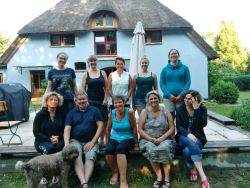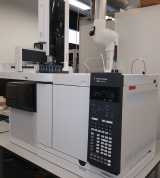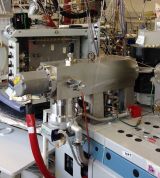
Organic Trace Substances

The research of the group addresses analyses and behavior of organic trace substances in the marine environment with focus on the Baltic Sea.
Measuring programs at sea and in the laboratory are conducted to answer complex questions such as the fate of organic trace substances in marine systems.
In the frame of the Environmental Monitoring of the IOW a range of organic contaminants in the Baltic Sea are analysed annually which allow to pursue long term data series and to observe long term trends in the field of organic pollutants.
The work of the research group is assigned to the research areas "Coastal Seas in Transition" (RA 2) and "Emerging Technologies Enabling Advanced Marine Science" (RA 3) of the IOW research program.
In the focus of our current research are environmental relevant compounds, such as
- Persistent contaminants, as the polychlorinated biphenyls and polycyclic aromatic hydrocarbons
- Pesticides, such as glyphosate
- Compounds from the group of pharmaceuticals and personal care products
- Natural organic P comounds, for example methyl phosphonic acid
- Endocrine active compounds, such as estrogens.
Essential basis of our work is the continuous development of reliable and sensitive methods for
- contaminant free sampling of anthropogenically derived trace substances, for example through in-situ pump systems
- sample processing, for example through solid phase extraction
- Analysis of environmental relevant compounds mainly by chromatographic mass spectrometric methods
- Determination of stable isotope ratios (C, N) of individual organic compounds
- Analysis of the dissolved organic material


